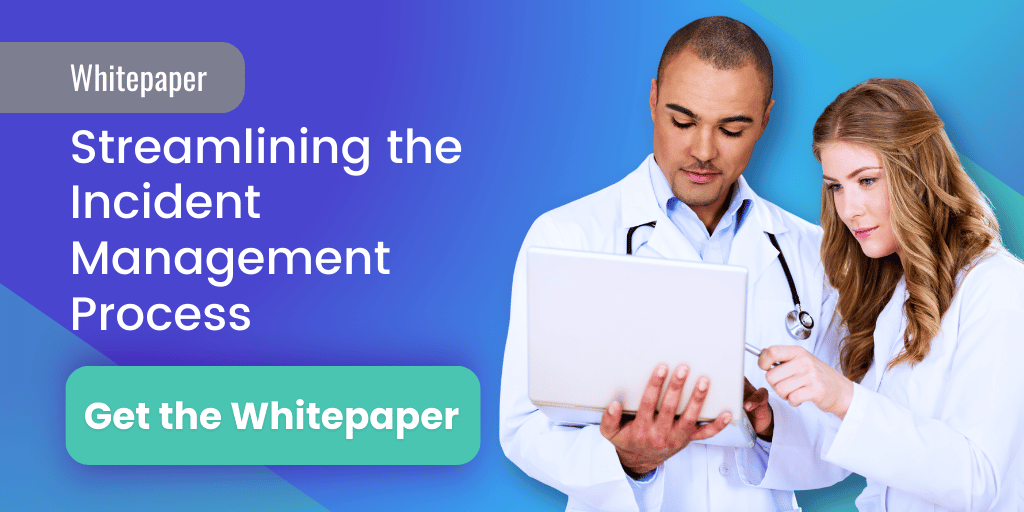3 min read
Optimizing Medication Practices with an Event Management Platform
Performance Health Partners
February 13, 2025

In healthcare, where precision and efficiency play an essential role in the prevention of harm, technology is reshaping how medication is managed and administered. Among the most promising innovations is the application of an event management platform to optimize medication practices and prevent medication errors. By leveraging advanced digital solutions, healthcare providers can streamline workflows, enhance communication, and improve patient outcomes.
The Challenge of Medication Management
Medication administration is one of the most critical aspects of patient care. Despite rigorous protocols, errors in prescribing, dispensing, and administering drugs remain a persistent challenge.
Medical errors can lead to adverse effects, hospital readmissions, and increased healthcare costs. Medication errors in particular are among the most common, and according to the Academy of Managed Care Pharmacy (AMCP), they harm at least 1.5 million people every year. Further, hospitals are estimated to spend at least $77 billion per year on addressing medication errors.
The primary causes of these errors include:
- Poor communication among healthcare teams. Medical safety experts at CRICO Strategies investigated 23,000 medical malpractice lawsuits. Over 7,000 lawsuits were attributed to communication failures that resulted in $1.7 billion in malpractice costs and almost 2,000 preventable deaths.
- Inadequate tracking of medication history. According to the Joint Commission, 80% of all adverse events, including medication errors, can be attributed to inadequate handovers. Inadequate handovers can result from incomplete patient assessments or medical record reviews.
- Human errors in dosage and administration. According to one study, almost 50% of medication errors result from prescribing the wrong medication, route, dose, or frequency.
- Inefficient documentation processes. Among the top nine types of medical documentation errors include sloppy or illegible handwriting, incomplete or missing documentation, and entering information into the wrong chart.
Traditional methods of medication management often rely on fragmented systems that lack real-time tracking and integration, making it difficult to ensure accuracy and safety.
The Role of an Event Management Platform
An event management platform offers a structured and proactive approach to optimizing medication practices by integrating automation, real-time monitoring, and seamless communication. These platforms, originally designed for orchestrating complex events, have proven highly effective in managing the intricate coordination required in medication administration.
Here’s how an event management platform enhances medication safety:
Automated Alerts and Notifications
Traditional medication error reporting is often paper-based or requires manual data entry, leading to underreporting and delayed response times. An incident management system ensures that when a medication error occurs and is reported, the issue is immediately escalated to the appropriate leadership team for review and corrective action.
For example, upon one hospital’s transition to an event management system from a manual reporting system, the average monthly number of medication errors decreased from 12.5 to 7.5.
Instead of relying on delayed or manual reporting, the system automatically flags high-risk incidents, notifies key stakeholders, and tracks the resolution process in real time. This proactive approach allows healthcare organizations to respond swiftly, implement necessary process improvements, and prevent similar errors from recurring.

Seamless Coordination Among Healthcare Teams
A centralized platform allows doctors, nurses, and pharmacists to collaborate efficiently, ensuring that everyone is on the same page regarding adverse events and patient safety. One organization implemented a safety event management system (SEMS) that used a closed-loop communication process.
The SEMS made sure that information from adverse events was shared between all members of the healthcare team. After transitioning to the new SEMS, the organization saw an 8.6% increase in overall reporting and a 53.7% increase in follow-ups on events with appropriate documentation.
Real-Time Tracking and Reporting
An event management platform enhances medication safety by providing real-time tracking and reporting of medication-related incidents. When an error or near miss is reported, the platform logs critical details such as the medication involved, the stage at which the error occurred, and contributing factors. This comprehensive documentation ensures transparency and accountability across all levels of care.
By maintaining an accurate, centralized record, healthcare organizations can analyze trends, identify systemic issues, and implement targeted interventions to reduce future risks. The ability to generate real-time reports also supports regulatory compliance and enables leadership to make data-driven decisions that optimize medication practices and enhance patient safety.

Data Aggregation for Trend Analysis
Over time, an event management platform aggregates data from reported medication errors, allowing healthcare organizations to track trends and identify patterns that may indicate systemic issues.
For example, if multiple reports reveal that a specific medication is frequently administered at the wrong dosage, leadership can investigate whether unclear prescribing instructions, packaging similarities, or workflow inefficiencies are contributing factors.
One study, which included over 55 hospitals, reviewed the use of an event management platform to analyze the data on medication errors reported over two years. Using the aggregated data, it was found that most medication errors occurred during administration (68%) and prescribing (24%). The hospitals were then able to begin implementing additional safety measures to address these patterns.
By analyzing aggregated data, organizations gain critical insights that drive smarter safety decisions—such as modifying protocols, implementing new training programs, or redesigning workflows—to proactively prevent medication errors before they occur.
The Future of Medication Management
As healthcare continues to evolve, the integration of event management platforms will become a standard practice in hospitals, clinics, and long-term care facilities. These platforms not only enhance medication safety but also improve overall healthcare delivery by fostering a culture of proactive management and continuous improvement.
The intersection of technology and healthcare presents a promising opportunity to revolutionize medication administration. By embracing event management platforms, healthcare providers can take a significant step forward in optimizing medication practices and preventing medication errors, ultimately leading to better patient care and outcomes.


